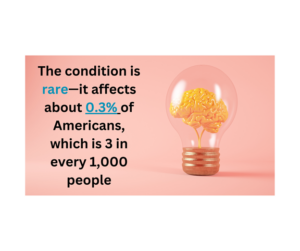Living with schizoaffective disorder can feel isolating, but you are not alone. Approximately 0.3% of Americans experience this complex condition, which combines symptoms of schizophrenia and mood disorders. At Archway Behavioral Health, we understand the unique challenges you face and offer comprehensive support through evidence-based therapies. Our skilled clinicians utilize different therapies to address both psychotic and affective symptoms. Whether you benefit from one-on-one sessions, group therapy, or specialized trauma and depression interventions, our team is here to guide you. For more intensive care, our partial hospitalization programs (PHPs) and intensive outpatient programs (IOPs) provide structured support to help you navigate your journey to wellness. Take the step toward reclaiming your life and health—contact us at (888) 488-4103.
What Is Schizoaffective Disorder?
Schizoaffective disorder is a chronic mental health condition characterized by a unique blend of psychotic symptoms and mood disturbances. It combines features of both schizophrenia (such as hallucinations, delusions, and disorganized thoughts) and a mood disorder like depression or bipolar disorder (marked by major depressive or manic episodes).
Two Main Types
There are two primary types of schizoaffective disorder:
- Bipolar Type: Includes episodes of mania and sometimes major depression along with psychotic symptoms.
- Depressive Type: Involves only major depressive episodes occurring alongside psychosis.
Symptoms can vary greatly but may include delusions, hallucinations, disorganized speech/behavior, depression, and periods of mania or hypomania.
Challenging to Diagnose
Schizoaffective disorder is often difficult to diagnose as the symptoms overlap with other mental health conditions. Psychiatrists use clinical assessments based on criteria in the Diagnostic and Statistical Manual (DSM-5) to identify the presence of both psychotic and mood disorder symptoms over an extended period.
Schizoaffective Disorder Symptoms
Psychotic Symptoms
People with schizoaffective disorder experience psychotic symptoms similar to schizophrenia, including hallucinations, delusions, and disorganized thoughts or behaviors. Hallucinations involve sensing things that aren’t real, while delusions are firmly held beliefs not based in reality.
Mood Disorder Symptoms
In addition to psychosis, schizoaffective disorder involves symptoms of a mood disorder – either bipolar (mania and depression) or depressive disorder. Manic symptoms may include elevated mood, increased energy and risky behaviors. Depressive symptoms often include persistent sadness, anxiety, fatigue and loss of interest.
Impact on Functioning
The combination of psychotic and mood symptoms in schizoaffective disorder can significantly impair daily functioning, relationships and quality of life. Symptoms typically begin in late teens or early adulthood and require comprehensive treatment, which may involve medications, therapy and support services.
Causes of Schizoaffective Disorder
Genetic Predisposition
The condition is rare—it affects about 0.3% of Americans, which is 3 in every 1,000 people. Studies suggest that schizoaffective disorder may have a genetic component. Having a close blood relative with schizoaffective disorder, schizophrenia, or bipolar disorder increases one’s risk. Researchers have identified variations in several genes that regulate brain development and neurotransmitter function which may contribute to the disorder’s onset.
Brain Chemistry Imbalances
An imbalance of certain chemicals in the brain, such as dopamine, norepinephrine, or serotonin, is thought to play a role in causing schizoaffective disorder. These neurotransmitters regulate mood, perception, and behavior – disruptions in their levels can lead to the disorder’s characteristic mix of psychotic and mood symptoms.
Environmental Factors
While genetics increase susceptibility, stressful life events or trauma may trigger symptom onset or exacerbations. Substance abuse, particularly mind-altering drugs, can also worsen an underlying condition. Some experts believe structural brain abnormalities present from birth may also contribute by impacting brain chemistry and development.
Treatment of Schizoaffective Disorder
Comprehensive Therapy Approaches
Schizoaffective disorder requires a multifaceted treatment approach combining medication and psychotherapy. Cognitive Behavioral Therapy (CBT), Dialectical Behavior Therapy (DBT), and EMDR are evidence-based therapies that can help manage symptoms. Facilities like Archway Behavioral Health offer these therapies to provide personalized care.
Intensive Programs for Support
For individuals needing more intensive support, partial hospitalization (PHP) and intensive outpatient programs (IOP) are available. These programs provide structured therapy sessions and support during the day while allowing patients to return home in the evenings. IOPs are a step-down option from PHPs, offering several hours of therapy per week.
Tailored Treatment Plans
Each patient’s needs are unique, so treatment plans are tailored accordingly. Medication-assisted treatment, combining medication management with psychotherapy, is often recommended. Individual and group therapy sessions can also be integrated into a comprehensive plan, addressing the complex challenges of schizoaffective disorder.
Living With Schizoaffective Disorder
The Challenges
Navigating schizoaffective disorder is a journey fraught with unique obstacles. This condition combines symptoms of schizophrenia, like hallucinations and delusions, with mood episodes like mania or depression. Those affected often experience a rollercoaster of emotional turmoil, making daily life a constant struggle.
Comprehensive Treatment
Fortunately, a multifaceted approach can help manage this complex condition. Therapies like cognitive behavioral therapy (CBT) and family interventions equip individuals with coping strategies and support systems. Medications, including antipsychotics and mood stabilizers, can alleviate severe symptoms.
Personalized Care
No two cases are alike, which is why personalized treatment plans are crucial. Intensive outpatient programs (IOPs) and partial hospitalization programs (PHPs) offer structured care tailored to each person’s needs. With determination and the right resources, living with schizoaffective disorder becomes manageable, empowering individuals to reclaim their lives.
Conclusion
As you navigate the challenges of schizoaffective disorder, remember that you are not alone. With an estimated 0.3% of adults in the U.S. affected, there is a community of support and understanding. Archway Behavioral Health offers a comprehensive range of therapies tailored to your needs, including CBT, DBT, EMDR, and specialized trauma and depression treatments. These evidence-based approaches, combined with one-on-one and group therapy sessions, can provide you with effective tools to manage symptoms and improve your quality of life. For more intensive support, consider exploring partial hospitalization programs (PHPs) or intensive outpatient programs (IOPs). Your journey towards wellness is unique, but with the right resources and support, you can find hope and healing. Take the step toward reclaiming your life and health—contact us at (888) 488-4103.



